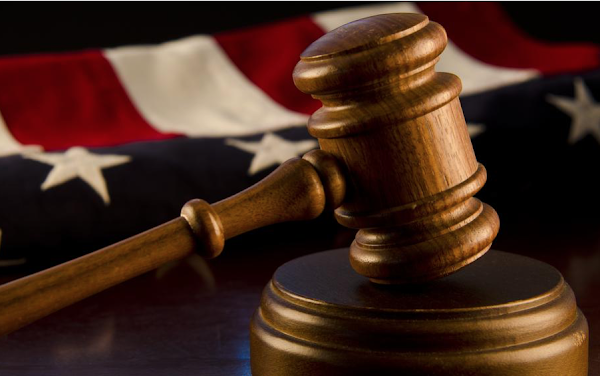
National Guard and Reserve suicide rates climbing
By DAVID GOLDSTEIN
McClatchy Newspapers
WASHINGTON -- Suicides among Army and Air National Guard and Reserve troops have spiked this year, and the military is at a loss to explain why.
Sixty-five members of the Guard and Reserve took their own lives during the first six months of 2010, compared with 42 for the same period in 2009. The grim tally is further evidence that suicides continue to plague the military even though it's stepped up prevention efforts through counseling and mental health awareness programs.
"Suicides among military personnel and veterans are at an epidemic rate, and it's getting worse," said Tim Embree, a former Marine who served two tours in Iraq and is now a legislative associate for Iraq and Afghanistan Veterans of America, an advocacy group.
The Army recently announced that 32 soldiers, including 11 in the Guard and Reserve, took their own lives in June, a rate of one a day and a level not seen since the Vietnam War, according to the military.
Seven of the suicides occurred in Iraq or Afghanistan.
The worrisome trend is reflected in Missouri, where the state Army and Air National Guards have suffered six suicides so far this year, their highest total in a decade.
They account for nearly a quarter of the 27 suicides experienced since the Missouri Guard started keeping records in 2001.
"We're all devastated," said Col. Gary Gilmore, joint force chaplain for the Missouri Guard. "From their battle buddy right next to them all the way up the chain, each one has a tremendous personal impact and sense of loss."
Read more: National Guard and Reserve suicide rates climbing
This is why I need your help. They are dying, families are falling apart and none of it has to happen.
Between the two blogs I have there are over 20,000 posts. In the almost three years this blog has been up, there are 9,928 posts. This one makes 9,929. Of these there are 185 post on Military Suicides, Post Traumatic Stress Disorder 2472, plus these;
PTSD (874)
PTSD advocate (8)
PTSD After Trauma (7)
PTSD and crimes (2)
PTSD and domestic violence (4)
PTSD and families (11)
PTSD and heart disease (1)
PTSD and homeless (1)
PTSD and military (4)
PTSD and police officers (5)
PTSD and suicide (11)
PTSD awareness (17)
PTSD Bill (1)
PTSD books (15)
PTSD CD (1)
PTSD claims (6)
PTSD clinic (1)
PTSD comes from bad training (1)
PTSD denial (2)
PTSD documentary (3)
PTSD drug (2)
PTSD education (2)
PTSD Final Battle of War (2)
PTSD firefighter (1)
PTSD gun owners (1)
PTSD honor (1)
PTSD I Grieve (6)
PTSD in children (1)
PTSD in firefighters (1)
PTSD in theater (1)
PTSD It's All About Soul (1)
PTSD linked to heart attacks (1)
PTSD marriages (1)
PTSD medal (1)
PTSD medications (9)
PTSD mobile center (1)
PTSD new claim rules (1)
PTSD Not God's Judgment video (2)
ptsd on trial (80)
PTSD prevention (2)
PTSD programs (1)
PTSD redeployed (5)
PTSD research (52)
PTSD screening (1)
PTSD secondary stressor (2)
PTSD service dogs (16)
PTSD signs (1)
PTSD siminar (1)
PTSD study (7)
PTSD support (17)
PTSD symptoms (1)
PTSD treatments (2)
PTSD veteran (2)
PTSD veterans in jail (4)
PTSD video (54)
PTSD web site (1)
PTSD Women’s and Family Support Group (1)
PTSD-TBI Guaranteed Review for Heroes Act (1)
In 2002 I self-published a book on living with PTSD For The Love of Jack. In 2005 I started to make videos so that no one would ever have to feel alone, hopeless or neglected ever again. While you see posts from 2005 on Screaming in an Empty Room, there were a lot more blogs and websites. Keep in mind I began this work in 1982. None of this has to happen!
I track the reports from across the country for one simple reason. It connects people so they can read about things happening all across the nation. If people think there is only one story out there about a soldier committing suicide, a veteran going homeless, a family falling apart, then they tend to not pay that much attention to it, yet when they read thousands of stories, they finally understand this is a huge story.
While readers of this blog are fully aware of my financial problems, that is not what I'm asking for help with right now. I'm asking you to send the links of my videos and my blog to everyone you know! Don't wait for someone else to help. The "powers that be" won't listen to someone like me because I have no money, no power behind me. I know I can't save all of them, can't keep every family together but I've managed to save a lot of them including my own. I don't just study this. I don't just track it. It's my life and I'll be damned if I don't try to give someone the same outcome I have today.











